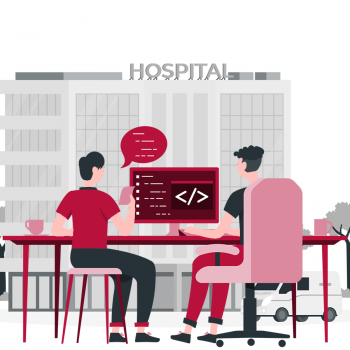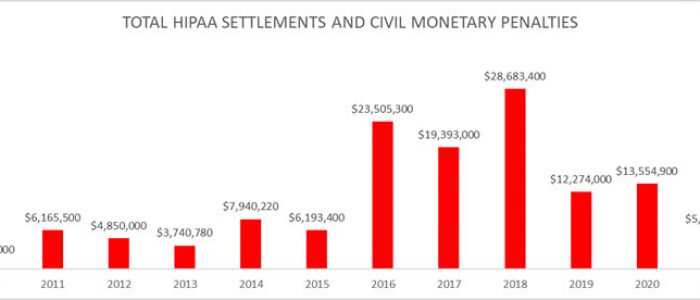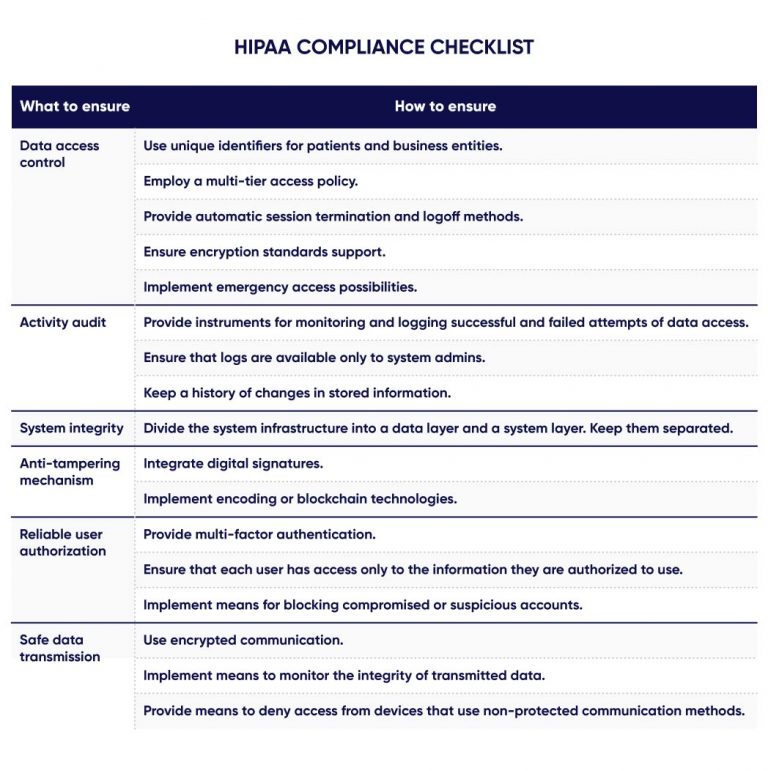
The demand for efficient and secure applications has never been higher in today’s fast-paced healthcare industry. As healthcare providers and systems increasingly rely on technology to streamline processes and deliver the best possible patient care, the need for robust Health Insurance Portability and Accountability Act (HIPAA) -compliant software has become paramount.
HIPAA is a federal law that mandates the protection and confidential handling of Protected Health Information (PHI). To ensure compliance, healthcare organizations must implement robust security measures, including encryption and secure data transmission. This article explores the intricacies of developing custom software applications that adhere to these stringent guidelines while offering seamless integration and interoperability within the healthcare ecosystem.
Here at Itirra, a leading Seattle-based healthcare software development firm, we are dedicated to delivering cutting-edge applications that not only meet HIPAA’s rigorous requirements but also provide a seamless user experience for health systems, providers, and patients alike. By leveraging our expertise in software development, we are at the forefront of creating tailored software solutions that address healthcare providers’ unique challenges and needs while prioritizing security and data privacy.
Why is HIPAA compliance crucial for healthcare applications?
In the rapidly evolving world of healthcare technology, ensuring that applications are fully HIPAA-compliant is of utmost importance. As a healthcare software development company, we understand the significance of adhering to these regulations and the potential consequences of non-compliance. Let’s look closer at the importance of HIPAA compliance in healthcare applications and how it safeguards sensitive patient information.
Protecting patient privacy
At the core of HIPAA compliance is the protection of patient privacy. With the increasing use of electronic health records (EHRs) and other digital solutions, the risk of data breaches and unauthorized access to sensitive patient data has grown exponentially. Ensuring that healthcare applications are HIPAA-compliant minimizes these risks by implementing stringent security measures, such as data encryption and secure data transmission, to protect PHI from unauthorized access or disclosure.
Enhancing trust and confidence
HIPAA-compliant applications foster trust and confidence among patients and healthcare providers. When individuals know that their sensitive health information is being handled securely and responsibly, they are more likely to share their data with healthcare providers. This trust is crucial for enabling the seamless exchange of health information, ultimately leading to improved patient care and better health outcomes.
Avoiding legal repercussions and penalties
Non-compliance with HIPAA regulations can have severe consequences, including hefty fines, legal action, and irreparable damage to an organization’s reputation. Healthcare providers and organizations that fail to adhere to these standards may face penalties ranging from $127 to $63,973 per violation, with an annual maximum of $1.92 million for identical violations (inflation-adjusted for 2023). By ensuring that healthcare applications are fully HIPAA-compliant, organizations can avoid these potentially devastating consequences and focus on providing the best possible care to their patients.

Facilitating interoperability
HIPAA-compliant applications also play a critical role in promoting interoperability within the healthcare ecosystem. By adhering to industry standards such as FHIR and HL7, these applications enable the seamless exchange of health information between different systems and healthcare providers. This interoperability streamlines care delivery and allows healthcare professionals to access accurate, up-to-date patient data, leading to better-informed decisions and improved patient outcomes.
Ensuring that healthcare applications are fully HIPAA-compliant is essential to healthcare software development. By prioritizing patient privacy, fostering trust, avoiding legal and financial repercussions, and facilitating interoperability, HIPAA-compliant applications contribute to a more secure, efficient, and patient-centered healthcare ecosystem.
Challenges with developing custom HIPAA-compliant applications in-house
Developing custom HIPAA-compliant applications in-house can be an attractive proposition for healthcare companies. However, building such applications comes with unique challenges and critical obstacles that organizations may face when attempting to develop HIPAA-compliant software without the expertise of a specialized healthcare software development company.
Inadequate data security measures
Data security is a critical aspect of HIPAA-compliant applications. Healthcare companies must ensure the highest level of security to protect sensitive patient data from unauthorized access, data breaches, and cyberattacks. In-house development teams might struggle to implement robust data encryption, secure data storage, and other security measures necessary to protect PHI without the expertise of healthcare software development professionals.
Lack of regulatory compliance expertise
Understanding and implementing the complex requirements specified under HIPAA can be overwhelming for in-house development teams. HIPAA covers many topics, including the privacy and security of PHI, secure data transmission, and breach notification requirements. Ensuring compliance requires a deep understanding of these regulations, which can be challenging without experienced healthcare software developers.
Scalability and interoperability concerns
As healthcare organizations grow, their applications must scale to accommodate increasing data and user traffic. Additionally, interoperability with other systems and software becomes crucial to enable seamless information exchange between different healthcare providers. In-house teams might lack the know-how to design scalable applications that integrate seamlessly with existing systems and comply with relevant data exchange standards such as HL7 and FHIR.
Limited resources and budget constraints
Developing a custom HIPAA-compliant application requires a significant investment of time, resources, and budget. In-house teams may face challenges in allocating adequate resources to the project, as they are often responsible for managing other essential tasks within the organization. Furthermore, without the guidance of a software development company, healthcare organizations might struggle to accurately estimate the costs associated with development, leading to budget overruns and potential financial losses.
Prolonged development timeline
Developing a custom application, especially one that adheres to strict HIPAA regulations, is a time-consuming process. In-house teams unfamiliar with healthcare software development may face difficulties in navigating the complexities of the development process, leading to project delays and missed deadlines. This can directly impact the organization’s ability to deliver quality care and maintain a competitive edge in the market.

What are the benefits of developing custom HIPAA-compliant applications?
In an industry where patient privacy and data security are paramount, healthcare organizations must be cautious when selecting software solutions. Custom HIPAA-compliant healthcare applications offer numerous advantages over off-the-shelf alternatives, and working with a specialized healthcare software development company like Itirra ensures that these solutions are tailored to each organization’s unique needs.
Expertise in healthcare regulations
A healthcare software development company that specializes in HIPAA-compliant applications has a deep understanding of the industry’s regulations and best practices. Their expertise in healthcare-specific standards such as FHIR, HL7, and HIPAA ensures that the custom applications they develop adhere to all necessary requirements. This not only mitigates the risk of non-compliance but also ensures that the application seamlessly integrates with existing healthcare systems and processes.
Tailored solutions for unique needs
Off-the-shelf software solutions often lack the flexibility and customization needed to address the specific requirements of different healthcare organizations. By partnering with a healthcare software development company, organizations can have custom applications built to meet their unique needs, resulting in a more streamlined and efficient workflow. This level of customization ensures that the software solution aligns with the organization’s goals and objectives, enhancing its overall effectiveness and utility.
Enhanced data security
A specialized healthcare software development company prioritizes data security and compliance in every aspect of its work. Developing custom HIPAA-compliant applications ensures that sensitive patient data is protected through robust security measures, including data encryption, secure data transmission, and access controls. This not only reduces the risk of data breaches but also helps healthcare organizations maintain compliance with industry regulations.
Seamless integration and interoperability
Healthcare software development companies are well-versed in creating applications that integrate seamlessly with existing healthcare systems and facilitate data exchange between different platforms. By adhering to industry standards such as FHIR and HL7, custom applications enable efficient data sharing and interoperability, streamlining care delivery and improving patient outcomes.
Ongoing support and maintenance
A reliable healthcare software development company provides ongoing support and maintenance to ensure the continued success of their custom applications. This includes addressing any issues or bugs, providing regular updates to meet evolving industry standards, and offering technical support to help healthcare organizations make the most of their software investment.
Conclusion
By investing in custom HIPAA-compliant software development, healthcare providers can enhance their overall operational efficiency and strengthen the trust and confidence of patients and stakeholders alike. The industry can continue to evolve and innovate while maintaining the highest standards of patient care and information protection by prioritizing data privacy and security through custom software development.
With a team of expert developers, Itirra offers a unique blend of industry experience and technical expertise to develop tailor-made applications that address the specific needs of healthcare providers. Itirra’s commitment to excellence and dedication to staying abreast of industry regulations and best practices ensures that its clients receive top-notch software solutions that meet the stringent HIPAA requirements and promote efficiency and enhance the overall patient experience.
If you’re looking to invest in a HIPAA-compliant application for your healthcare organization, reach out today and explore how our services can elevate your healthcare organization’s capabilities while ensuring compliance with the highest privacy and security standards.
